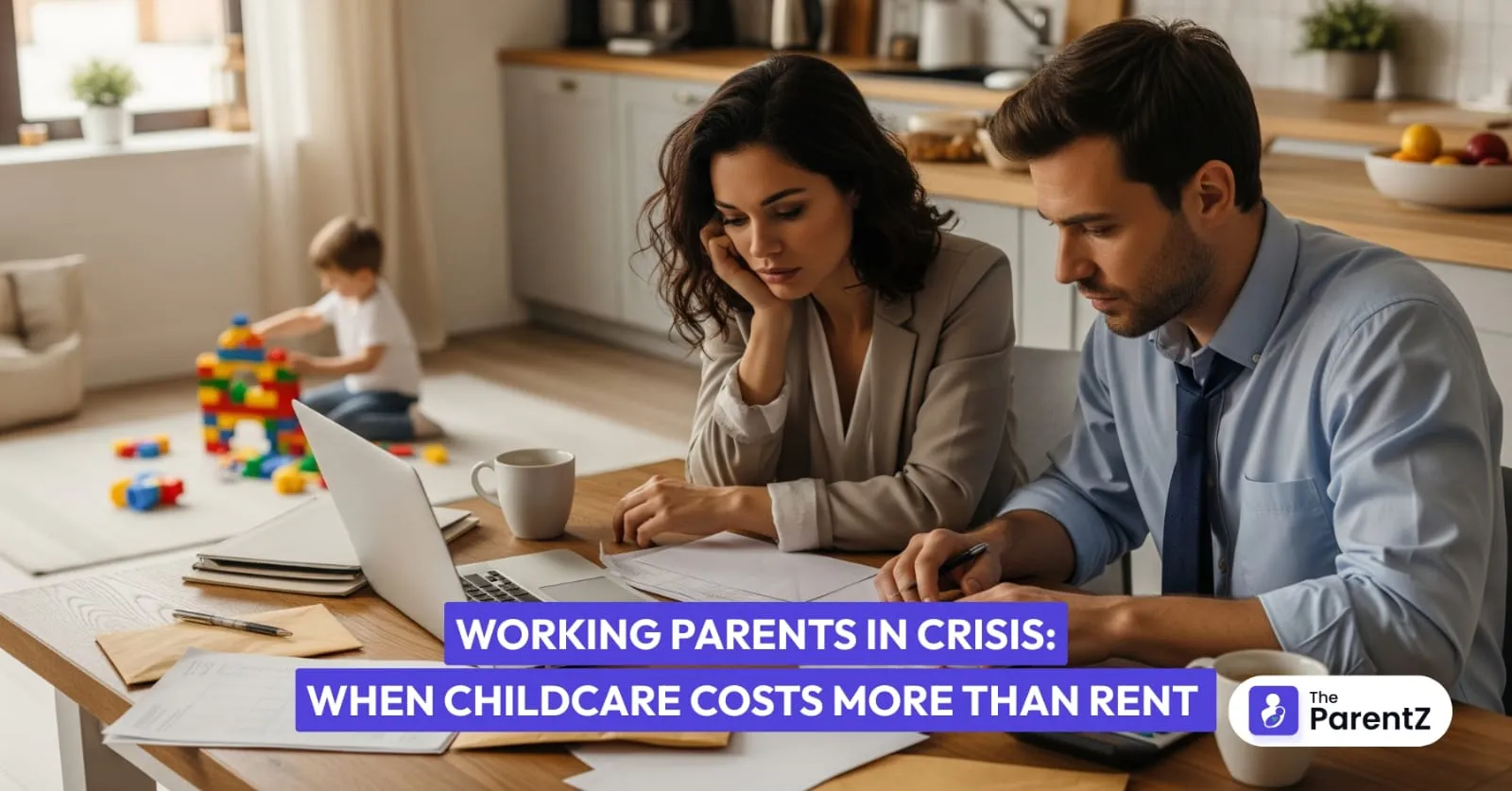You wake up at 6 AM, get your toddler ready, drop them at daycare, rush to work, pick them up by 6 PM, come home exhausted, and then you look at your bank statement. The daycare fee? It's more than what you pay for rent.
Thousands of working parents across India and the world are facing the same nightmare right now. Childcare has become so expensive that many families are asking themselves a scary question: "Can we even afford to work?"
The Reality in India Right Now
If you're living in a metro city like Mumbai, Delhi, or Bangalore, a 1BHK apartment costs you around ₹11,000 to ₹20,000 per month. That's already a big chunk of your salary.
Now add childcare to that. In smaller cities, daycare can cost anywhere from ₹3,000 to ₹15,000 per month. But in big cities? You're looking at ₹15,000 to ₹30,000 or even more for a decent daycare center. For many families, that's matching or crossing their rent amount.
Think about it. You're paying someone almost as much as your house rent just to watch your child while you go earn that rent money. It feels like running on a wheel.
It's Not Just an Indian Problem
If you think it's bad here, look at what's happening globally.
In Washington D.C., parents are paying $24,243 per year, that's $2,020 per month, for childcare. That's basically the same as rent for a one-bedroom apartment there. In the U.S., the average weekly daycare cost has jumped to $343, up nearly 7% from last year.
Countries like New Zealand, the U.S., and Czechia have some of the highest childcare costs as a share of average family income.
The whole world is struggling with this. It's not just you. It's not just your city. It's everywhere.
What Can You Actually Do?
1. Share the Load with Other Parents
Find other families in your neighborhood with kids around the same age. Take turns watching each other's children. Maybe you take all the kids on Monday and Wednesday, and they take them on Tuesday and Thursday. It's free, and your child gets playmates too.
2. Look Into Employer Benefits
Many companies now offer childcare support or flexible work options. Ask your HR department. Some offer daycare subsidies or work-from-home days. Don't assume they don't have it, just ask.
3. Consider Family Help
Living with in-laws or parents comes with its own challenges. But if you have family nearby who can help even 2-3 days a week, that's thousands of rupees saved every month. Even part-time help from grandparents can cut your daycare costs in half.
4. Flexible Working Hours
Can you start early and finish early? Can your partner work different hours so one of you is always home? Staggered schedules aren't easy on your relationship, but they can save you ₹10,000-15,000 a month.
5. Check Government Programs
Anganwadi centers in India provide early childhood care at very low costs. They're not perfect, but they're a lot better than they used to be. Look into what's available in your area.
6. Home-Based Daycare
Individual caretakers running small daycares from their homes usually charge less than big centers. Yes, you need to check references carefully, but many are excellent and charge ₹5,000-10,000 less per month.
7. Negotiate at Work
Be honest with your employer. Tell them the childcare situation is making it hard for you to work. Many companies would rather give you flexibility than lose a good employee. Maybe you can work from home more, or adjust your hours, or even bring your child to work occasionally.
Conclusion
None of these solutions is perfect. You'll still feel stretched thin. You'll still have days when you wonder if it's all worth it.
But, you're doing an incredibly hard thing. You're raising a human being while trying to build a career and pay bills. That's not easy in any economy, in any country.
The childcare crisis is real. It's not in your head. It's not because you're bad with money. The system is genuinely broken right now, and working parents are bearing the weight of it.
So give yourself some credit. Ask for help. Use whatever resources you can find. And remember that this phase won't last forever. Your child will grow up, costs will shift, and you'll figure it out because that's what parents do. We always find a way.





Be the first one to comment on this story.